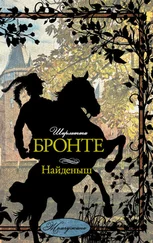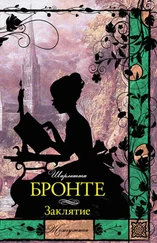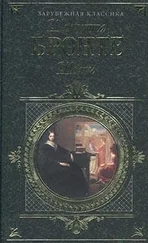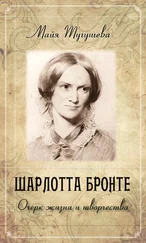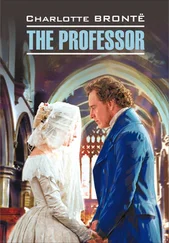Шарлотта Бронте - The Professor
Здесь есть возможность читать онлайн «Шарлотта Бронте - The Professor» — ознакомительный отрывок электронной книги совершенно бесплатно, а после прочтения отрывка купить полную версию. В некоторых случаях можно слушать аудио, скачать через торрент в формате fb2 и присутствует краткое содержание. Год выпуска: 2014, Издательство: epubBooks Classics, Жанр: Классическая проза, на английском языке. Описание произведения, (предисловие) а так же отзывы посетителей доступны на портале библиотеки ЛибКат.
- Название:The Professor
- Автор:
- Издательство:epubBooks Classics
- Жанр:
- Год:2014
- ISBN:нет данных
- Рейтинг книги:3 / 5. Голосов: 1
-
Избранное:Добавить в избранное
- Отзывы:
-
Ваша оценка:
- 60
- 1
- 2
- 3
- 4
- 5
The Professor: краткое содержание, описание и аннотация
Предлагаем к чтению аннотацию, описание, краткое содержание или предисловие (зависит от того, что написал сам автор книги «The Professor»). Если вы не нашли необходимую информацию о книге — напишите в комментариях, мы постараемся отыскать её.
The Professor — читать онлайн ознакомительный отрывок
Ниже представлен текст книги, разбитый по страницам. Система сохранения места последней прочитанной страницы, позволяет с удобством читать онлайн бесплатно книгу «The Professor», без необходимости каждый раз заново искать на чём Вы остановились. Поставьте закладку, и сможете в любой момент перейти на страницу, на которой закончили чтение.
Интервал:
Закладка:
"You will come with me?"
In another minute I and the directress were walking side by side down the alley bordered with fruit–trees, whose white blossoms were then in full blow as well as their tender green leaves. The sky was blue, the air still, the May afternoon was full of brightness and fragrance. Released from the stifling class, surrounded with flowers and foliage, with a pleasing, smiling, affable woman at my side—how did I feel? Why, very enviably. It seemed as if the romantic visions my imagination had suggested of this garden, while it was yet hidden from me by the jealous boards, were more than realized; and, when a turn in the alley shut out the view of the house, and some tall shrubs excluded M. Pelet's mansion, and screened us momentarily from the other houses, rising amphitheatre–like round this green spot, I gave my arm to Mdlle. Reuter, and led her to a garden–chair, nestled under some lilacs near. She sat down; I took my place at her side. She went on talking to me with that ease which communicates ease, and, as I listened, a revelation dawned in my mind that I was on the brink of falling in love. The dinner–bell rang, both at her house and M. Pelet's; we were obliged to part; I detained her a moment as she was moving away.
"I want something," said I.
"What?" asked Zoraide naively.
"Only a flower."
"Gather it then—or two, or twenty, if you like."
"No—one will do—but you must gather it, and give it to me."
"What a caprice!" she exclaimed, but she raised herself on her tip–toes, and, plucking a beautiful branch of lilac, offered it to me with grace. I took it, and went away, satisfied for the present, and hopeful for the future.
Certainly that May day was a lovely one, and it closed in moonlight night of summer warmth and serenity. I remember this well; for, having sat up late that evening, correcting devoirs, and feeling weary and a little oppressed with the closeness of my small room, I opened the often–mentioned boarded window, whose boards, however, I had persuaded old Madame Pelet to have removed since I had filled the post of professor in the pensionnat de demoiselles, as, from that time, it was no longer "inconvenient" for me to overlook my own pupils at their sports. I sat down in the window–seat, rested my arm on the sill, and leaned out: above me was the clear–obscure of a cloudless night sky—splendid moonlight subdued the tremulous sparkle of the stars—below lay the garden, varied with silvery lustre and deep shade, and all fresh with dew—a grateful perfume exhaled from the closed blossoms of the fruit–trees—not a leaf stirred, the night was breezeless. My window looked directly down upon a certain walk of Mdlle. Reuter's garden, called "l'allee defendue," so named because the pupils were forbidden to enter it on account of its proximity to the boys' school. It was here that the lilacs and laburnums grew especially thick; this was the most sheltered nook in the enclosure, its shrubs screened the garden–chair where that afternoon I had sat with the young directress. I need not say that my thoughts were chiefly with her as I leaned from the lattice, and let my eye roam, now over the walks and borders of the garden, now along the many–windowed front of the house which rose white beyond the masses of foliage. I wondered in what part of the building was situated her apartment; and a single light, shining through the persiennes of one croisee, seemed to direct me to it.
"She watches late," thought I, "for it must be now near midnight. She is a fascinating little woman," I continued in voiceless soliloquy; "her image forms a pleasant picture in memory; I know she is not what the world calls pretty—no matter, there is harmony in her aspect, and I like it; her brown hair, her blue eye, the freshness of her cheek, the whiteness of her neck, all suit my taste. Then I respect her talent; the idea of marrying a doll or a fool was always abhorrent to me: I know that a pretty doll, a fair fool, might do well enough for the honeymoon; but when passion cooled, how dreadful to find a lump of wax and wood laid in my bosom, a half idiot clasped in my arms, and to remember that I had made of this my equal—nay, my idol—to know that I must pass the rest of my dreary life with a creature incapable of understanding what I said, of appreciating what I thought, or of sympathizing with what I felt! "Now, Zoraide Reuter," thought I, "has tact, CARACTERE, judgment, discretion; has she heart? What a good, simple little smile played about her lips when she gave me the branch of lilacs! I have thought her crafty, dissembling, interested sometimes, it is true; but may not much that looks like cunning and dissimulation in her conduct be only the efforts made by a bland temper to traverse quietly perplexing difficulties? And as to interest, she wishes to make her way in the world, no doubt, and who can blame her? Even if she be truly deficient in sound principle, is it not rather her misfortune than her fault? She has been brought up a Catholic: had she been born an Englishwoman, and reared a Protestant, might she not have added straight integrity to all her other excellences? Supposing she were to marry an English and Protestant husband, would she not, rational, sensible as she is, quickly acknowledge the superiority of right over expediency, honesty over policy? It would be worth a man's while to try the experiment; to–morrow I will renew my observations. She knows that I watch her: how calm she is under scrutiny! it seems rather to gratify than annoy her." Here a strain of music stole in upon my monologue, and suspended it; it was a bugle, very skilfully played, in the neighbourhood of the park, I thought, or on the Place Royale. So sweet were the tones, so subduing their effect at that hour, in the midst of silence and under the quiet reign of moonlight, I ceased to think, that I might listen more intently. The strain retreated, its sound waxed fainter and was soon gone; my ear prepared to repose on the absolute hush of midnight once more. No. What murmur was that which, low, and yet near and approaching nearer, frustrated the expectation of total silence? It was some one conversing—yes, evidently, an audible, though subdued voice spoke in the garden immediately below me. Another answered; the first voice was that of a man, the second that of a woman; and a man and a woman I saw coming slowly down the alley. Their forms were at first in shade, I could but discern a dusk outline of each, but a ray of moonlight met them at the termination of the walk, when they were under my very nose, and revealed very plainly, very unequivocally, Mdlle. Zoraide Reuter, arm–in–arm, or hand–in–hand (I forget which) with my principal, confidant, and counsellor, M. Francois Pelet. And M. Pelet was saying—
"A quand donc le jour des noces, ma bien–aimee?"
And Mdlle. Reuter answered—
"Mais, Francois, tu sais bien qu'il me serait impossible de me marier avant les vacances."
"June, July, August, a whole quarter!" exclaimed the director. "How can I wait so long?—I who am ready, even now, to expire at your feet with impatience!"
"Ah! if you die, the whole affair will be settled without any trouble about notaries and contracts; I shall only have to order a slight mourning dress, which will be much sooner prepared than the nuptial trousseau."
"Cruel Zoraide! you laugh at the distress of one who loves you so devotedly as I do: my torment is your sport; you scruple not to stretch my soul on the rack of jealousy; for, deny it as you will, I am certain you have cast encouraging glances on that school–boy, Crimsworth; he has presumed to fall in love, which he dared not have done unless you had given him room to hope."
"What do you say, Francois? Do you say Crimsworth is in love with me?"
"Over head and ears."
"Has he told you so?"
Читать дальшеИнтервал:
Закладка:
Похожие книги на «The Professor»
Представляем Вашему вниманию похожие книги на «The Professor» списком для выбора. Мы отобрали схожую по названию и смыслу литературу в надежде предоставить читателям больше вариантов отыскать новые, интересные, ещё непрочитанные произведения.
Обсуждение, отзывы о книге «The Professor» и просто собственные мнения читателей. Оставьте ваши комментарии, напишите, что Вы думаете о произведении, его смысле или главных героях. Укажите что конкретно понравилось, а что нет, и почему Вы так считаете.


